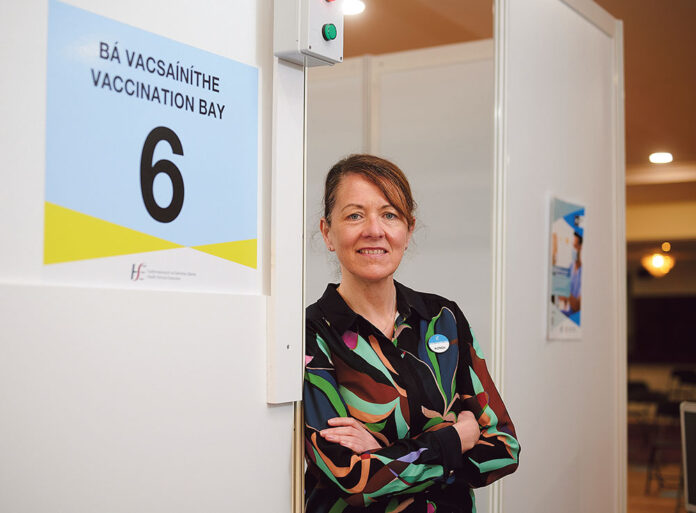In our second installment of our ‘Day in the Life’ series, Dan Danaher speaks with Ennis Hospital’s Director of Nursing Patricia O’Gorman
EVERYONE took nurses for granted before the Covid-19 pandemic, according to Ennis Hospital director of nursing, Patricia O’Gorman.
Patricia believes there is now a greater appreciation of what nurses do after they upskilled, redeployed into different roles, moved six and seven times into different departments and counties, moved from day to night duty and travelled countless miles to work
She would love to see a nursing representative in the National Public Health Emergency Team.
“Nothing happens without nurses. We are the biggest and most flexible workforce,” she explains.
She acknowledges there were some positive developments during the pandemic such as the provision of three isolation bays in the Ennis Medical Assessment Unit.
“There was huge gratitude for health care workers. There was a lot of learning. A lot of nurses and clinicians were upskilled. There was a sense of pride to be working in healthcare at the time.
“There is a lot of hope that careers in health care will appeal to the younger generation.
“There was a huge sense of working together within the UL Hospitals’ Group.
“We linked up every day and has a very inspirational chief executive, Colette Cowan, who allowed shared governance and decision making and this helped allay fears on the Ennis site.”
Patricia recalles the worst part of coping with the virus was the unknown.
She was redeployed to manage and be the clinical lead for the Mid-West Vaccination Centres since March 1.
Patricia feels the night former Taoiseach Leo Varadkar announced restrictions for the first lockdown last year was a night everyone will remember for the rest of their lives.
“He delivered a message, this is critical and very serious. I was in New York for an unplanned visit in mid term in February when there were no restrictions and within four weeks we were in lockdown.
“His message made us accountable and challenged us in the healthcare sector.”
Once Covid-19 restrictions were introduced, Patricia’s key objective was to keep 320 staff, visitors and patients safe in Ennis Hospital.
She had to deal with staff concerns concerning redeployment following the shutdown of scheduled care and the continuation of the Local Injury Unit and treatment for medical in-patients.
She felt was important to allow staff express their fears and support them when they were at their most vulnerable.
Some nurses travelling from Lisdoonvarna and Miltown into Ennis were now being asked to drive further to Dooradoyle and in some cases required training for new roles.
“Fears of staff being isolated as health care workers emerged especially around students and staff sharing accommodation. There was a little bit of envy as other people could go home to work and stay with their children.
“It was challenging but there personal satisfaction when we held town hall style meetings with social distancing and people felt we were being open, transparent and telling the truth. Once people felt we were supporting them, it worked better. There was some learnings for all of us.”
Covid-19 patients, ranging from ten to 24, were cohorted into one ward on the bottom floor so one family member could at least see their loved ones through a window.
Psychologists were made available to staff to allay fears and anxiety and to assist staff who lost loved ones as a result of the virus.
A patient advocate used to take a short video of patients for their families who could also sent messages in return through social media.
A lot of information on how to cope with Covid-19 was given to patients and their families to allay their concerns. Three priest from Ennis Cathedral were trained how to use PEE so they could give the last rites to patients.
One family member could visit a patient for ten minutes after being trained in the use of PPE in exceptional situations such as end-of-life.
By Dan Danaher

